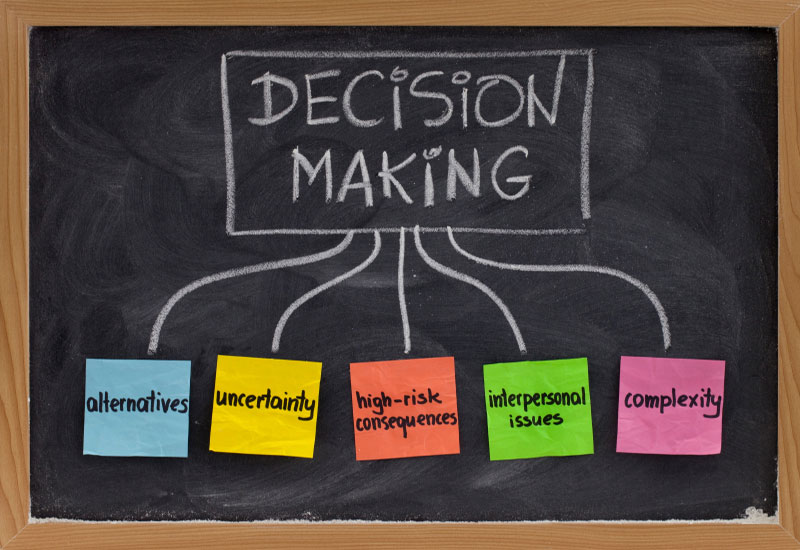In the current fast-paced world, the capacity to make solid decisions is increasingly important than before. Whether in personal life, at work, or in the broader context of society, our decisions can have significant impacts on our futures. While many rely strongly on data and analytical thinking, there is a increasing recognition of the invaluable role that intuition plays in decision-making. Often characterized as a gut feeling, intuition can guide us in moments when time is short or when the data available is insufficient.
Grasping the dynamics between intuition and logic is essential for mastering the skill of effective decision-making. Intuitive perspectives can act as a strong complement to structured decision-making frameworks, offering a harmony between emotional intelligence and rational thought. By learning how to utilize this inner knowledge, we can improve our decision-making skills and navigate life's challenges with increased confidence. In this piece, we will explore different techniques to sharpen our decision-making processes and reveal the psychology behind effective choices, empowering readers to trust their instinct while also relying on critical thinking.
Understanding Insight within Decisions
Intuition is often characterized as a gut feeling that informs our decisions bypassing the necessity for lengthy reasoning. It operates beneath the facade of our aware mind, drawing upon our prior encounters, awareness, and emotional responses to reach judgments quickly. Click here for more permits individuals to take decisions quickly, which can be particularly advantageous in time-sensitive contexts where logical thinking may cause paralysis by analysis.
Studies in behavioral science shows that gut feeling can considerably improve the decision process, as it accesses our innate ability to assess circumstances based on body language and instincts. However, depending solely on gut feelings can be erroneous, notably if our feelings or prejudices cloud our judgment. Striking the proper harmony between instinct and analytic reasoning is crucial for making sound decisions, especially in high-stakes contexts.
Identifying the importance of intuition involves grasping its strengths and constraints. Although it can lead to quick and efficient choices, it is essential to foster self-awareness and critical thinking. By considering previous choices and acknowledging the underlying emotional elements, individuals can improve their gut skills and enhance their decision-making abilities. This combination of intuition and rational thought promotes higher confidence in the decisions we make, finally resulting in more effective consequences.
Techniques to Improve Decision-Making Abilities
Developing decision-making abilities begins with articulating your objectives and understanding the circumstances of your choices. Take the time to identify what you really want to achieve prior to assessing your choices. This clarity not just facilitates the decision-making process and also helps you harmonize your decisions with your values. Think about making a vision board or documenting your objectives to maintain your attention clear. By defining clear objectives, you will be more prepared to discern which options actually support your best interests.
One effective approach to improve decision making is to utilize a systematic decision making structure. This may include employing tools such as the SWOT framework to assess the advantages, weaknesses, opportunities, and risks related to your choices. On the other hand, you might leverage the matrix method or a cost-benefit analysis to weigh the advantages and disadvantages in a structured manner. By utilizing these approaches, you can lessen emotional influence and clarify your thought process, thus culminating in more well-founded and sensible choices.
In conclusion, engage in mindfulness in your decision making process. Pausing to a moment to pause and reflect prior to making decisions enables you to connect with your instincts while also assessing the circumstance with a clear mind. Techniques such as controlled breathing or mental visualization can help you stay focused and alleviate stress. By incorporating mindfulness, you provide room for both gut feeling and logic to play a role, improving your ability to formulate assured choices amid challenging times.
Reconciling Intuition with Critical Analysis
In the decision-making process, intuition often serves as a helpful guide, drawing on our subconscious understanding and experiences. It allows for quick choices and can be particularly beneficial in situations where time is limited. However, relying solely on gut feelings can sometimes lead to errors, especially in challenging scenarios. Therefore, it is crucial to combine intuitive insights and logical thinking to arrive at well-rounded decisions.
Logical thinking entails evaluating data, examining evidence, and exploring various outcomes based on logic and reasoning. This method provides a structured framework to dissect options and weigh the advantages and disadvantages, which is essential when decisions carry significant consequences. By merging analytical processes with intuitive feelings, individuals can enhance their decision making capabilities, ensuring that their choices are both prompt and substantiated by relevant information.
To successfully balance these approaches, one can begin by recognizing their gut instincts while also committing to a structured evaluation of the situation. Setting aside dedicated time to analyze the aspects of each decision can help clarify thoughts and foster mental clarity. This supportive relationship between intuition and logical thinking not only develops confidence in decision-making but also fosters a deeper understanding of the choices at hand, leading to more successful outcomes.

